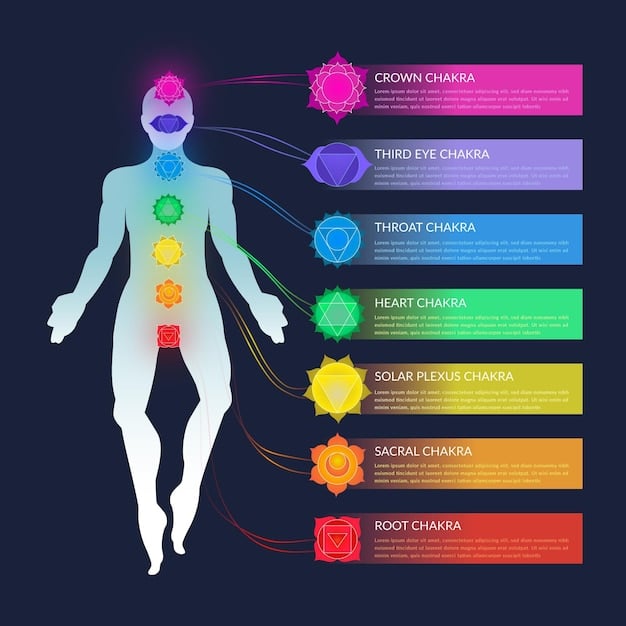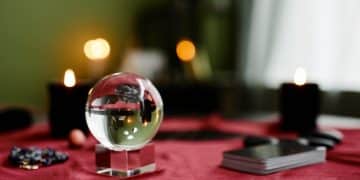Energy Healing Techniques: Are Reiki and Pranic Healing Legit?

Energy healing techniques like Reiki and Pranic Healing are popular, but books on these modalities often lack scientific evidence and can promote misleading claims, necessitating a critical approach.
Exploring energy healing techniques such as Reiki, Pranic Healing, and others can be a fascinating journey. But are the books that teach these methods reliable? Let’s take a critical look.
Understanding Energy Healing Techniques
Energy healing techniques have gained popularity as complementary and alternative medicine practices. But what exactly are they, and how do they claim to work? Let’s delve into the fundamentals of these methods.
Energy healing is based on the belief that a vital energy, often referred to as prana, qi, or life force, flows through the body. Disruptions in this energy flow are believed to cause illness and ailments. These techniques aim to restore balance and promote healing by manipulating this energy.

Common Modalities
- Reiki: A Japanese technique involving the transfer of universal energy through the practitioner’s hands to facilitate emotional or physical healing.
- Pranic Healing: A system developed by Master Choa Kok Sui that uses prana to address imbalances in the energy body, without physical touch.
- Therapeutic Touch: A technique where practitioners use their hands to assess and balance the energy field surrounding the patient’s body.
Proponents suggest that these techniques can alleviate pain, reduce stress, and enhance overall well-being. However, it’s essential to approach these claims with a critical eye, examining the evidence and considering the potential for placebo effects. There is no credible scientific evidence that support those claims.
The Allure of Reiki Books
Reiki has become a household name in energy healing, and numerous books promise to teach its secrets. But what makes these books so appealing, and what should readers look for when exploring Reiki literature?
The allure of Reiki books often lies in their promise of self-healing and empowerment. They suggest that anyone can learn to channel Reiki energy and improve their lives, making the practice seem accessible and straightforward.
What to Look For
- Lineage and Authenticity: Seek out books that clearly outline the author’s Reiki lineage and qualifications. Reputable teachers can trace their training back to Mikao Usui, the founder of Reiki.
- Balanced Perspective: A good Reiki book should acknowledge both the potential benefits and the limitations of the practice. Be wary of books that make exaggerated claims.
- Practical Exercises: Look for books that include practical exercises and techniques for developing your Reiki skills, rather than just theoretical information.
While Reiki books can be a valuable resource for beginners, they should not be considered a substitute for hands-on training with a qualified Reiki master. The attunement process, which is essential for opening the energy channels, typically requires in-person guidance.
Navigating Pranic Healing Literature
Pranic Healing, with its focus on cleansing and energizing the energy body, also has a growing body of literature. How can readers sift through these books to find reliable and informative resources?
Pranic Healing books often emphasize the importance of understanding the energy anatomy and the specific techniques for addressing various ailments. They present a structured system for working with prana to promote healing.

Critical Considerations
- Scientific Rigor: Pranic Healing books often include diagrams and explanations of energy anatomy. Approach these with a critical mindset. Are the claims supported by any scientific evidence, or do they remain in the realm of theoretical constructs?
- Comprehensive Approach: Look for books that cover a wide range of Pranic Healing techniques, from basic cleansing and energizing to advanced methods for specific conditions.
- Ethical Considerations: A responsible Pranic Healing book should emphasize the importance of ethical practice and the need to avoid making definitive medical claims.
As with Reiki, Pranic Healing is best learned through a combination of reading and practical training. Seek out certified Pranic Healing instructors who can provide personalized guidance and ensure that you are using the techniques safely and effectively.
Evaluating Claims in Energy Healing Books
One of the biggest challenges in exploring energy healing books is evaluating the claims made by authors. How can readers distinguish between credible information and unsubstantiated assertions?
Energy healing books often present anecdotal evidence and personal testimonials as proof of their effectiveness. While these stories can be inspiring, they should not be taken as scientific evidence.
Questioning Assumptions
When reading energy healing books, it’s important to actively question the underlying assumptions. Ask yourself:
- Is there any scientific basis for the claims being made?
- Are the results reproducible in controlled studies?
- Are there alternative explanations for the observed effects?
A healthy dose of skepticism can help you avoid being swayed by exaggerated claims and focus on the information that is most likely to be accurate and helpful. Don’t rely solely on energy healing for serious medical conditions.
The Role of the Placebo Effect
The placebo effect plays a significant role in many healing modalities, including energy healing. Understanding this phenomenon can help readers approach energy healing books with a more balanced perspective.
The placebo effect refers to the phenomenon where a person experiences a perceived benefit from a treatment that has no inherent therapeutic value. This effect is triggered by the belief that the treatment will work, leading to physiological and psychological changes.
Harnessing the Power of Belief
While the placebo effect is often dismissed as “just psychological,” it can have real and measurable effects on the body. In the context of energy healing, the belief in the practitioner’s ability to heal and the expectation of positive outcomes can enhance the effectiveness of the treatment.
When reading energy healing books, it’s important to be aware of the potential for placebo effects to influence your perceptions and experiences. This doesn’t mean that the techniques are ineffective, but it does highlight the importance of separating the inherent benefits from the power of belief.
Integrating Critical Thinking
Ultimately, the key to navigating energy healing literature is to integrate critical thinking skills. This involves questioning assumptions, evaluating evidence, and considering alternative explanations.
By approaching energy healing books with a discerning eye, readers can avoid being misled by exaggerated claims and gain a deeper understanding of the potential benefits and limitations of these practices.
A Balanced Approach
Energy healing can be a valuable tool for promoting well-being and self-discovery. However, it should not be viewed as a replacement for conventional medical care. A balanced approach that combines energy healing with evidence-based medicine is often the most effective way to achieve optimal health.
| Key Concept | Brief Description |
|---|---|
| ✨ Energy Healing | Techniques to balance vital energy and promote healing. |
| 👐 Reiki | Japanese technique transmitting universal energy through hands. |
| 🌀 Pranic Healing | Uses prana to address imbalances without physical touch. |
| 🤔 Critical Thinking | Essential to evaluate claims in energy healing literature. |
Frequently Asked Questions
▼
Most energy healing techniques lack robust scientific evidence. Research is ongoing, but many claims are not supported by controlled studies. Be cautiously optimistic when reading claims by proponents.
▼
No, energy healing should not replace conventional medical treatment. It’s best used as a complementary therapy alongside evidence-based medicine to support overall well-being.
▼
The placebo effect is a phenomenon where belief in a treatment leads to perceived benefits. It can play a role in energy healing, highlighting the importance of separating inherent benefits from belief.
▼
Look for authors with clear lineage, balanced perspectives, and practical exercises. Question assumptions, evaluate evidence, and be aware of potential placebo effects when digesting the content.
▼
While books can be helpful, in-person training with a qualified instructor is recommended. Attunement processes and personalized guidance can enhance your skills and ensure safe practice. Seek reputable teachers.
Conclusion
In conclusion, while energy healing techniques and the books detailing them can offer intriguing insights and potential avenues for personal well-being, readers should approach them with a critical and informed mindset. Combining curiosity with discernment is key to navigating this field responsibly.





